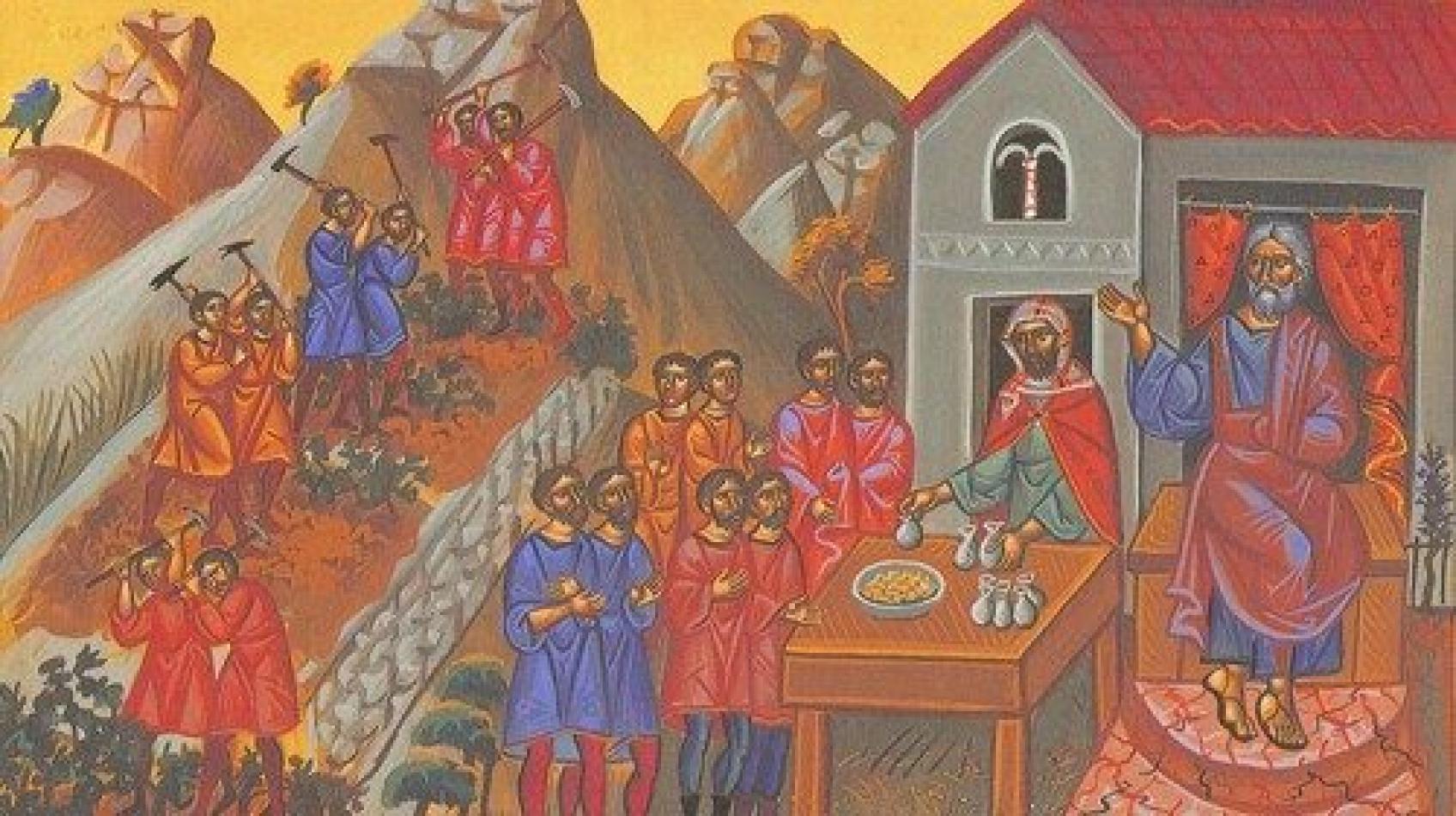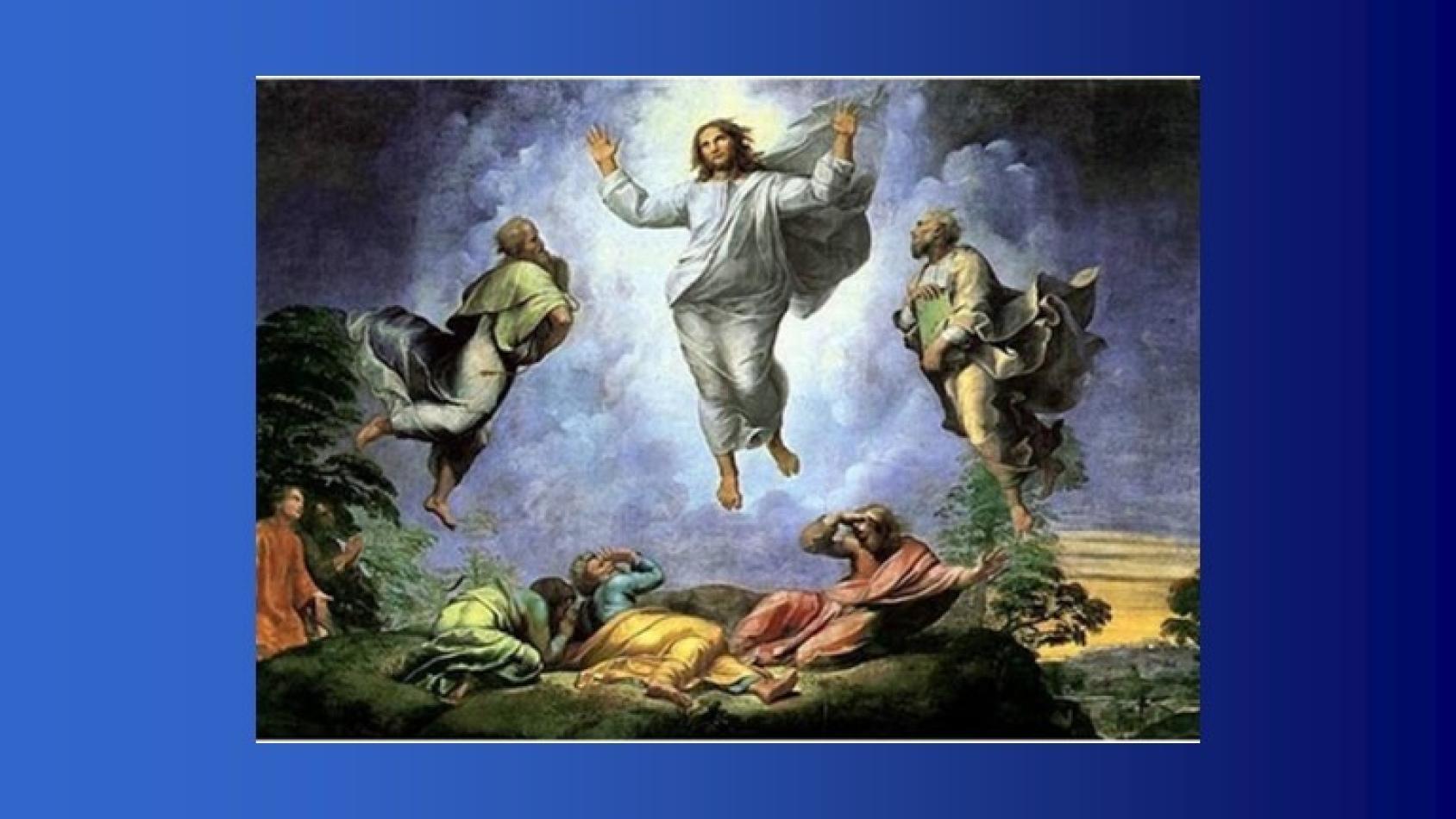Daniel Comboni
Comboni Missionaries
Institutional area
Other links
Newsletter
There’s something unfair and irritating in the behavior of the owner referred to in the parable. He acts generously but does not take into account the merits. Nobody forbade him to do charity with his money. However, rewarding those who had appeared at the seventeenth hour and who until then, had remained dormant and, perhaps, had done nothing but loiter, is very illogical.
GOSPEL REFLECTION
There’s something unfair and irritating in the behavior of the owner referred to in the parable. He acts generously but does not take into account the merits. Nobody forbade him to do charity with his money. However, rewarding those who had appeared at the seventeenth hour and who until then, had remained dormant and, perhaps, had done nothing but loiter, is very illogical. Who deserved a recompense, if ever, were those who had struggled most, the workers of the first hour. We stipulate contracts based on certain principles and these are not observed in the parable.
It is exactly in the provocative act of the master that the main teaching of the story is dealt with. Let’s find out.
It’s harvest time. The mature grapes are collected and crushed, paying attention to the time and the right moon. For owners of large vineyards, these are tense days. They need workers and laborers who do not have a steady job and who know how to take advantage of the kindness of the tenants to snatch a favorable contract. The more willing place themselves well before dawn at strategic points. They expect that someone may pass to hire them. It is at this point that our parable begins.
Even before sunrise, behold, the tenant arrives breathless. He is on his feet for more than two hours. He has scheduled the day’s work, placed the tubs, baskets, and barrels.
He baked the bread and prepared the olives to be distributed to the workers at midday. His face is tense and from his looks, snappy, almost nervous gestures, he shows all his concerns and haste. A few words to agree on the pay and behold the first group, the early risers, are already in the vineyard.
The eagerness of the master to conclude the work as soon as possible is really great. In fact, he comes out four more times searching for workers: at mid-morning, midday, at three in the afternoon and when he calls the last group it was already the seventeenth hour, an hour before the end of the workday. So far nothing strange, everything is normal and logical.
We begin to identify the characters: the master is God or Christ; the workers are the disciples who, at different times of their lives, respond to the call; the vineyard is the Christian community, where work is not lacking and must be done with extreme urgency. The haste is the same that we find in the disposition given by Jesus to his envoys; “Do not stop at the homes of those you know” (Lk 1:4) because there is no time to lose. The day is the image of everyone’s life and the evening is the time of the righteous judgment of God.
We thus come to the crux of the parable. The law states: “Do not exploit the lowly and the poor daily-wage earner, whether he be one of your brothers or a foreigner whom you find in your land and in any of your cities. Pay him daily before the sun goes down because he is poor and he depends on his earnings. Then he will not cry to Yahweh against you, and you will have no sin” (Dt 24:14-15) and, in fact, the master ordered to put workers in line and to hand to all a silver coin … beginning from the last.
Here is the impropriety!
If he had rounded the pay of those who had worked only one hour, secretly, without attracting attention, for compassion there would be nothing to object. However, provoking the rage of those who, after twelve hours of work had sunburned faces and haggard with fatigue, it seems downright cruel. The workers of the first hour, who cannot even hold up for fatigue, are forced to witness an irritating scene. They unbelievingly observe the colleagues, with shameless and relaxed audacity of idlers, receiving an undeserved pay.
It is in this surprising and disconcerting behavior of the master that the message of the parable is perceived.
With the workers of the first hour, he had agreed on a silver coin, with others what will be just, with the last he had not agreed on anything.
The lack of understanding comes from the lack of clarity about what the boss meant by just. The workers have understood him according to their criteria of judgment. They were convinced that he would take account of the merits. The owner instead follows his own justice and distributes his goods in a completely free and open way. He did not wrong anyone; he just decided not to consider the merits. He gave everyone according to their needs and, of course, the first to be benefited were the last, the poorest (v. 16). That’s the surprise of God; that is his strange way of conceiving and practicing justice.
The parable is the clearest and provocative denouncement that can be imagined of the religion of merits taught by the spiritual guides of Israel (and supported by many even today).
The people—catechized by the priestly caste—forgot the good God, father, husband and faithful friend, preached by the prophets. They were convinced that the Lord was a legislator and a judge, so the relationship with him could only be one of the servants before the master. The rabbis taught: “He who fulfills a precept acquires for himself a lawyer, who commits a transgression acquires for himself a prosecutor. All God’s judgments are based on measure for measure.” They completed their catechesis talking about books kept in heaven, on which the meritorious deeds and transgressions were carefully noted.
According to this logic, God could not give anything for free. To get his blessing one had to earn it. To the objection: “The Bible says that Abraham, while still a pagan, was called by God. He was not just, therefore, his vocation was completely a free gift.” The rabbis replied, “Even if it is not explicitly stated, Abraham certainly had done good works; he had earned his vocation!”
With his parable, Jesus destroyed, forever, this self-righteous way of relating to God. The love of the Lord is never bought, conquered or assessed based on good works. It is received freely and in proportion to the need. “God has filled the hungry with good things, but he sent the rich away empty” (Lk 1:53).
He never gets tired of going out to meet the person, even when he misses all the appointments. God does not pay according to merits. No one can feel in credit with him (Lk 18:9-14).
Before God, we are all children: we turn our eyes to the Father and expect from him all the best.
The religion of merits stems from the conviction that getting into the vineyard of the Lord—that is, the Kingdom of God—is tantamount to bearing an immense effort that of observing the commandments and precepts that do not always seem justified. So we ask: how is it possible that one who scrupulously practices the law of God be benefited as one who has neglected it? Why is one who was called by God only at the last hour, who is saved in the nick of time, must have part of the heavenly inheritance like the servants who remained faithful throughout their life?
Many “just ones” feel an unacknowledged envy against one who, being converted at the last moment, had the good fortune to “work less,” to enjoy life more. Here is the error: to think that joy consists in being far from God and that faithfulness to his word deserves a prize.
An example may help to grasp the ambiguity present in this way of thinking.
One starts to study music at an early age and practices for many hours a day. Another, at seventy, decides, when he lost all interest, to get his hands on a piano and does so with little enthusiasm. Which “reward” awaits the two? Nothing more than this: the joy of relishing the music. Their enjoyment will be different: the one who started early had more time to savor the pleasure of performing and listening to music;his joy is more intense and deeper.
Blessed are the servants who came first in the “vineyard of the Lord.” They surely have also struggled. They have enjoyed “since morning” the presence of the Lord. The workers of the first hour are those who have spent every day of their lives in the intimacy with God and in listening to His Word. The others who presented themselves late at the appointment, who did not let themselves be found when the Lord came to call them, have lost many opportunities that were offered to them.
Those who defers the entrance into the Kingdom of God does not make God angry. He does not punish for this. He complains, yes, because he wants to involve people earlier in his love and make them happy. These indecisions, perplexities, hesitations in abandoning themselves to him are also moments of lost joy. Every moment the bride spends without the groom is a moment of missed loved.
With this parable, the evangelist who was addressing Christians imbued with the self-righteous mentality also wanted to put the disciples on guard of the danger of competition within the community. No one can think of oneself being superior to others because no one can consider oneself a veteran because he got converted first, because he practices the Gospel more faithfully. No one is master of the “vineyard”; are all workers, all are brothers.
The parable is not ended. After the words of the master, how did those who murmur react? Have they accepted? Have they continued to grumble? Have they responded with insults? Have they thrown the money at the face of the winemaker? Have they vowed to never come back to work for him?
The reaction that we attribute to the workers in the parable reflects our reaction to the goodness and generosity of God. In his vineyard one commits oneself freely. One does not do good to the brother to get a prize. It would be the worst of selfishness: to make use of the poor and needy to accumulate merits.
READ: This parable is not a popular one. Notice that it has several endings, as if the author did not know how to deal with this teaching of Jesus. Pay attention to all the characters and their reactions.
REFLECT: Why is it difficult to rejoice in the great fortune of another? People get jealous when they think someone has something that belongs to them—or even when they simply want what another has. What is your reaction to this parable?
PRAY: You can always find someone who has more than you and others who have less. In your prayer, ask to avoid envy. Jealousy destroys relationships. Pray to avoid it at all costs; and remember that life can be unfair. Pray for a heart that delights in the well-being of the other.
ACT: When something good happens to another, join in the celebration and try to move beyond self-centeredness. Make an act of genuine appreciation and delight in the blessings received by someone in your circle of friends.
Fernando Armellini
Italian missionary and biblical scholar
https://sundaycommentaries.wordpress.com





